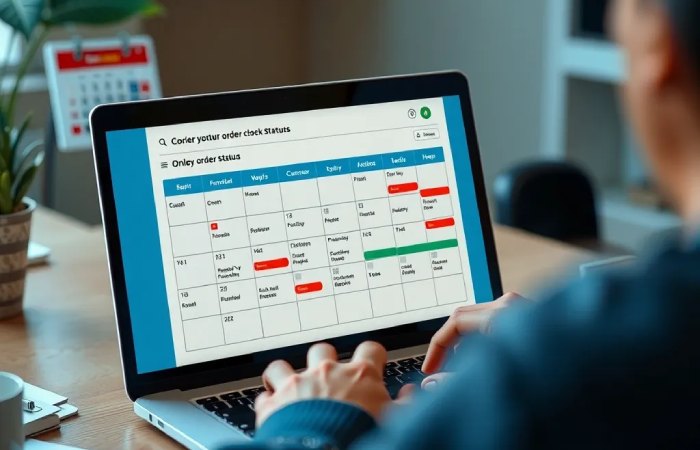In today’s fast-paced environment, knowing what a business day really is also makes all the difference in optimizing deadlines, financial transactions, and service deliveries. If you’re waiting for a package, processing a payment, or planning a project, understanding how long a business day is will help save you time and a lot of frustration. The following article explores everything you need to know about a business day — its definition, duration, and caveats.
Table of Contents
What Is a Business Day?
It is any day on which normal business operations are carried out. For most Western nations, a business day is usually considered to be from Monday to Friday, 9 a.m. to 5 p.m. local time. This period does not include weekends (Saturday and Sunday) not include public holidays. However, this definition may change based on industry, location, and individual business practices.
In the financial sector, for instance, it is any day on which the stock market is open for trading. On the other hand, a business day for shipping companies might feature longer hours or even operational shifts on weekends, depending on the service level.
Understanding the Duration of a Business Day
Standard Business Hours
In the United States and many other countries, a typical business day is eight hours long, typically from 9 a.m. to 5 p.m. This is known as the “9-to-5” shift and is the standard for most office work. However , that may vary widely between industries and regions.
Variations Across Industries
- Retail and Hospitality: Organizations in these industries tend to work outside of the traditional 9-to-5 schedule, even on weekends and holidays.
- Healthcare: Like all businesses in, say, an emergency room, hospitals and clinics operate around the clock; their business days are continuous.
- Shipping and Logistics: Most courier companies only ship from Monday to Friday, although some offer the option of Saturday and Sunday delivery for a fee.

Business Days in Different Countries
The notion of a it isn’t one-size-fits-all. The definition can vary by country due to different work weeks and public holidays.
- Middle East: Most Muslim-majority countries observe a work week that goes from Sunday to Thursday and has Friday and Saturday as weekend days.
- India, Mexico, and Colombia: These countries typically don’t have a five-day workweek, with Saturday being a business day.
- Japan: The average business day in Japan is from 8:30 a.m.–7 p.m., matching the country’s notoriously long working hours.
When it comes to international transactions, these differences are a factor that must be accounted for to avoid unnecessary delays.
Why Business Days Matter?
Financial Transactions
Thus, these days are significant when it comes to financial transactions. For example:
- Check Clearing: A check can take two or more business days to clear (not including weekends and holidays).
- ACH Transfers: These electronic transfers can take one to three business days to process.
- Stock Trading: The stock market is only open on business days, which means that trades can only take place during business hours.
Shipping and Deliveries
Online orders and product delivery are typically done on business days. For example, a package with a “3-5 business day” delivery window is to arrive within three to five weekdays, not counting weekends and holidays.

Special Considerations
Holidays and Observances
Public holidays could delay the time it takes to finalize a transaction or receive a delivery. For example, if you order on the Friday before a long weekend, the business days will not resume until the following Tuesday.
International Transactions
Keep in mind different business days and time zones when working directly with international partners. For example, if the transaction was initiated on a Friday in the U.S., it might not be processed until Monday in a country that works from Sunday to Thursday.
How to Calculate Business Days?
The calculation is a simple process once you know the rules:
- Count from the next business day following the transaction or order.
- You should not count days on weekends and public holidays.
- Determine the completion or delivery date by counting the indicated number of business days.
By way of example, if you order on Thursday and it is scheduled to arrive in five business days, you should receive it by the following Thursday, not counting the weekend.
FAQs
1. Does One Business Day Mean Tomorrow?
Not necessarily. It is 24 hours , and businesses are open. That could mean the next calendar day or the day after — depending on when the transaction is completed.
2. Are All Business Days the Same Worldwide?
No, it differ from one country/region to another. For example, the business week in many Middle Eastern countries is Sunday through Thursday.
3. What Time Does a Business Day End?
A business day, after all, has ended at 5 p.m. local time. However, this may vary by industry and business.
4. How Do Holidays Affect Business Days?
One thing to note is that holidays are not business days, which means they can add to the time it takes to close a transaction or receive a shipment.
5. Can they include Weekends?
It usually do not include weekends. Some sectors, including shipping and retail, however, work on weekends — which are for those sectors — possibly helping this date end up on the weekend.
The Bottom Line
Knowing how long a business day takes will help you manage your time as well as your expectations from other businesses. Whether you’re waiting for a financial transaction to be process, tracking a package, or scheduling tasks for a project, an understanding of it will help ensure that you’re on top of your obligations. You will be able to make your way through the global business landscape, as you do all the time!
By remembering these insights, you’ll better informed and able to tackle deadlines, transactions, and deliveries personally and professionally. It may sound straightforward, yet their nuances affect your day-to-day activities substantially.
